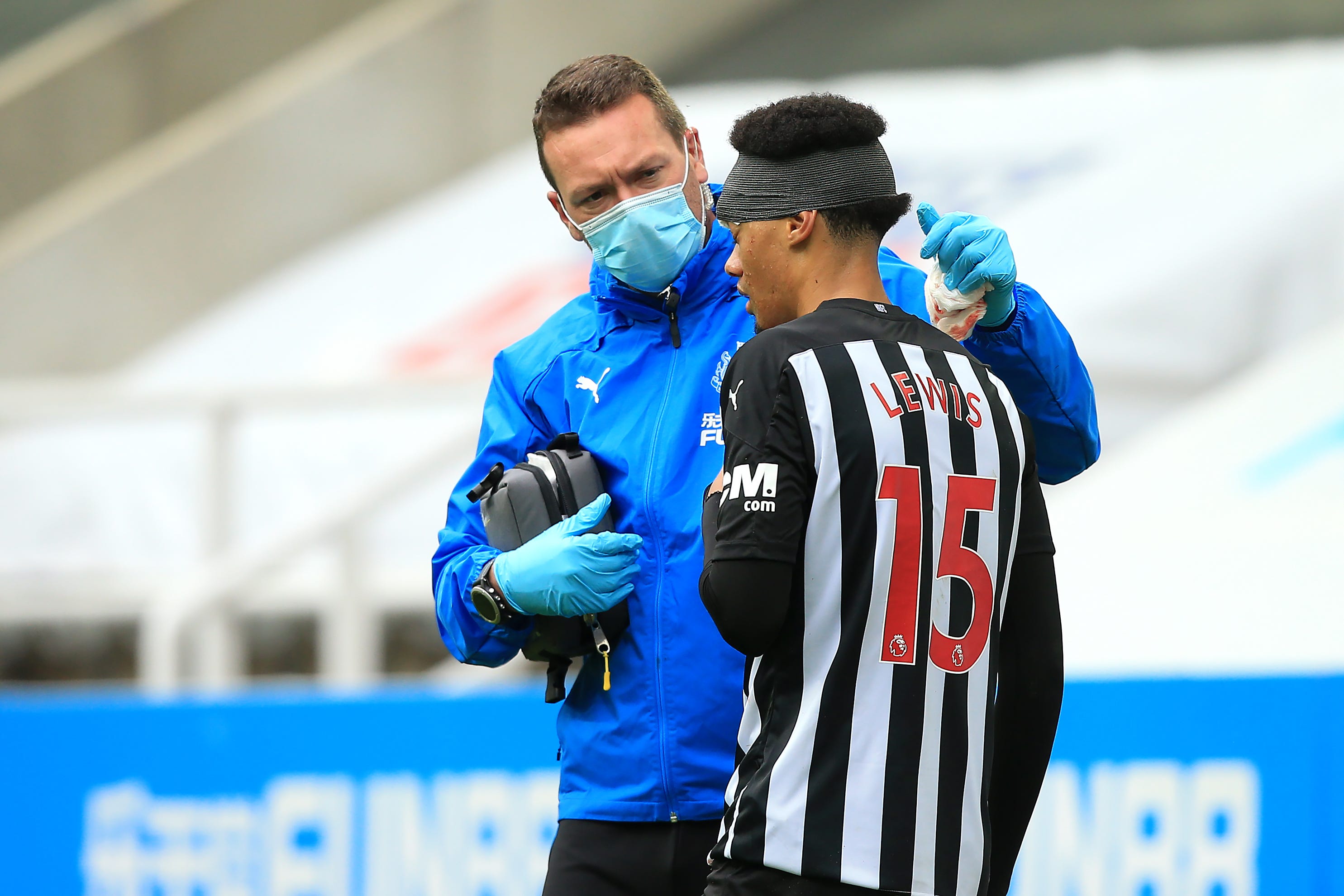FIFPRO boss: Leagues and player unions should be in charge of concussion rules
A trial of temporary concussion substitutes was again rejected by the IFAB last Saturday.

Your support helps us to tell the story
From reproductive rights to climate change to Big Tech, The Independent is on the ground when the story is developing. Whether it's investigating the financials of Elon Musk's pro-Trump PAC or producing our latest documentary, 'The A Word', which shines a light on the American women fighting for reproductive rights, we know how important it is to parse out the facts from the messaging.
At such a critical moment in US history, we need reporters on the ground. Your donation allows us to keep sending journalists to speak to both sides of the story.
The Independent is trusted by Americans across the entire political spectrum. And unlike many other quality news outlets, we choose not to lock Americans out of our reporting and analysis with paywalls. We believe quality journalism should be available to everyone, paid for by those who can afford it.
Your support makes all the difference.Leagues and player unions should be free to agree their own concussion protocols, the boss of the world players’ organisation FIFPRO has said.
A trial of temporary concussion substitutes in the Premier League, France’s Ligue 1 and Major League Soccer in North America was again rejected by the International Football Association Board, which sets the game’s laws, last Saturday.
Jonas Baer-Hoffmann, the general secretary of FIFPRO, which along with the World Leagues Forum has led calls for a trial, says it is wrong that leagues and players were “not even at the table” when the decision was made.
We will keep the pressure on this. Very clearly we will talk to the leagues to see what they are prepared to do on the back of this decision. But we will not let this one go.
The PA news agency understands FIFPRO and the WLF are considering a number of options in response to the rejection, including a legal challenge. There even remains the possibility of one or more of the leagues pressing ahead with a trial regardless.
Baer-Hoffmann said his organisation was “very convinced” matters like this should be made solely via an agreement between leagues and domestic players’ unions.
“If these are questions about the long-term health of players, why are they taken in this forum (the IFAB), where stakeholders who want to push ahead and want to make more progressive steps are not even at the table?” he said.
“We are very convinced that employers and employees – in this case, a league and a union – if they were to agree on implementing those (concussion) standards, that should supersede other rules.
“That is not something new – that happens in the space of transfer regulations all the time. There are rules at FIFA level that are circumvented because of domestic collective bargaining agreements. And that is accepted. So why would it be different here?
“We will keep the pressure on this. Very clearly we will talk to the leagues to see what they are prepared to do on the back of this decision. But we will not let this one go.”
The Premier League issued a statement on Sunday saying it could not understand the basis for the trial being rejected.
Supporters of the trial believe a longer assessment period away from the pitch will reduce the possibility of concussed players being left on and exposed to highly dangerous secondary concussions.
The trial is understood to have had the support of the four UK national associations who make up four-fifths of the IFAB, but world governing body FIFA, which holds four votes at each annual general meeting, prefers to focus on ensuring the existing permanent concussion substitute protocol is properly implemented.
FIFA’s medical director Dr Andrew Massey says the risk of false negatives after a 10-minute assessment is up to 25 per cent.
Of course it would be better to take any player off where you have a suspected concussion, and to just take an immediate decision, but it just doesn't happen in practice.
“We want to get a safer threshold,” the former Liverpool physician told FIFA.com.
“We want to change the narrative with respect to what everyone agrees with, not: ‘Is this person concussed?’ Rather: ‘Can we rule a concussion out?’
“That’s why the permanent subs are so much safer: zero chance of a false negative and zero chance of taking a risk with anybody that you suspect has a concussion, either from whatever symptoms they’re displaying at the time, or the mechanism of their injury.”
Baer-Hoffmann said: “I fail to comprehend the logic, to be very honest. The defence of the current model is one that in our view, and our experience over more than 10 years of working on this, just departs from reality.
“Of course it would be better to take any player off where you have a suspected concussion, and to just take an immediate decision, but it just doesn’t happen in practice.”